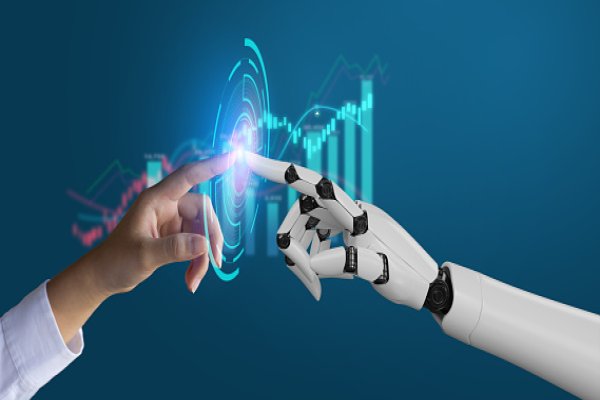With the beginnings of AI-driven language models, Google (GOOGL) has been pushing its boundaries in developing powerful and innovative algorithms for understanding natural language. Last month Google (GOOGL) made waves after announcing LaMDA, a revolutionary generative technology that could potentially improve Silicon Valley’s current conversational AI offerings.
On the other hand, OpenAI launched Chatbot GPT-3 earlier this year, which claims to be even more accurate and advanced than LaMDA or any existing model available today. With two powerhouses going head to head with their competitive products, it might be time for serious disruption in how we think about language processing using artificial intelligence.
AI Investment Thesis
Many market analysts and SA contributors have recently questioned the competitive advantage Alphabet (NASDAQ: GOOG) (NASDAQ GOOGL) holds in light of ChatGPT’s emergence. However, we do not necessarily share this opinion. AI chatbot technology is not new; Microsoft (MSFT) released its version, Tay AI, in 2016, and Meta (META) unveiled BlenderBot 3 AI earlier this year.
GOOG has offered LaMDA [Language Model for Dialogue Applications] in various forms and versions since 2020. The development of the ChatGPT platform was first initiated by GOOG researchers in 2017, with engineer Blake Lemoine believing that the AI platform was conscious at the time.
Amr Awadallah, who worked for Yahoo and GOOG and now runs Vectara, says:
According to market speculation, LaMDA was previously not launched, as the AI chatbot’s conversational platform did not fit with GOOG’s existing advertising model, which accounted for 81% of its revenue in FY2021. There may also be reputational risks since the AI chatbot has been known to mimic human speech from the internet, propagating certain forms of hate speech, fake news, and racist/sexist remarks with a large degree of informational inaccuracy.
A problem with Google’s approach to commerce is that if it provides users exactly what they are looking for, they are not incentivized to view any advertisements.
The LaMDA AI platform is only accessible to a select group of AI developers through the AI Test Kitchen and has not been released publicly.
Our research has uncovered many parallelisms between GOOG’s demonstration of LaMDA in May 2021 and ChatGPT. Both were impressive, with the two being comparable in certain aspects, as seen to the left and right.
Comparison: Lamda vs ChatGPT
Google & ChatGPT
GOOG has been relying on its success for a while now, but we don’t think ChatGPT poses a legitimate risk to them. Even though it will likely be an incredible technological and experiential breakthrough shortly, this situation is reminiscent of what happened with Instagram taking over Meta in 2012, Snapchat Stories overtaking in 2016, and TikTok doing so again in 2020.
So far, the giant has had a good degree of success in responding to most of these threats, and it is estimated that it will retain 67.13% of the worldwide social media market by November 2022.
Given ChatGPT’s smashing success, GOOG has reportedly initiated a “Code Red operation” in light of Sundar Pichai’s demonstrated proficiency. There is thus no reason to doubt that the company will be able to counteract this threat.
The CEO had ordered the research, trust, and safety divisions to create and introduce AI prototypes and products that will be competitive by mid-2023.
Undoubtedly, GOOG must innovate and adjust to the tough competition and changing user requirements by revamping its Google Search Engine with Artificial Intelligence technology while maintaining its advertising income.
The company has already spent $29.22B in R&D expenses over the last nine months, an increase of 27.93% compared to the previous year. Thanks to the 30.26K new employees they have taken on this year, they may be able to allocate more time and resources toward these endeavors.
Given its long-running regulatory tussles in several nations, it is evident that human intervention is essential to guarantee the information provided on the platform is exact, dependable, and safe for widespread use. Depending on how matters progress in the coming months, the company could record ever-increasing R&D costs as part of its protective strategy towards ChatGPT.
OpenAI has predicted to gain $1B in revenue beginning in FY2024. However, there is a potential problem with monetization, given the platform’s approach to obtaining and paying for data. Elon Musk has already expressed his worries about OpenAI having access to Twitter’s database for Artificial Intelligence training.
What direction OpenAI will take with ChatGPT regarding its future development and whether it will remain open-source or become a subscription service is yet to be determined. Initially, the platform was intended to provide non-profit services.
Google’s Q3 2022 Revenue Breakdown By Segment
Seeking Alpha
The Google Search & Others segment reported an impressive $119.84B in revenue during the first nine months of 2022, a 13.43% increase from the prior year. This is possible due to their free search engine platform, which earns revenue through advertising.
We should not overlook other divisions of Google, such as YouTube Ads and Google Cloud, which have brought in substantial revenues of $21.28B and $18.96B, respectively.
GOOG has a substantial amount of cash/investments of $116.25B per the most recent quarter and only minimal liabilities in long-term debt at $12.85B. In addition, it generated an impressive Free Cash Flow of $62.54B during the last twelve months (LTM), while its capital expenditure was also quite high at $30.27B.
Despite the inflationary pressures, its profit margins have seen considerable growth from FY2019 onwards, with EBIT/ net income/ FCF margins increasing from 22.2%/21.2%/19.1% to 27.8%/23.7%/22.2% during the last twelve months (LTM).
Under the worst circumstances, GOOG’s superior track record may lead them to purchase OpenAI. This is because OpenAI’s $1B in revenue by 2024 would be far inferior to Google’s accomplishments up until now.
Google’s LaMDA and OpenAI’s ChatGPT both fulfill the same function of providing engaging conversations with a digital assistant. However, their approaches to doing so differ greatly. LaMDA takes an AI-driven approach, while ChatGPT relies on human feedback to improve its language model. While LaMDA is still in development, it has the potential to revolutionize how we interact with digital assistants. If you want to keep up with the latest AI technology advancements, follow Google and OpenAI closely.
Source: Seeking Alpha



